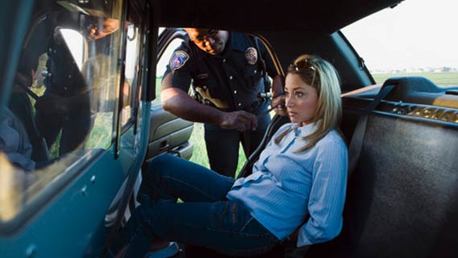Words of Encouragement to Nice People Who Have Had a Recent Encounter With Law Enforcement
Consider This Possibility: Maybe You Didn't Do Anything Wrong
Maybe you were stopped for a minor, technical violation of the Oregon Rules of the Road for Drivers. Maybe you didn't do anything wrong.
For decades, publicity sponsored by government agencies and special interest groups has warned the public of the dangers of impaired driving. In turn, many people believe (incorrectly) that it's against the law in Oregon to have a drink and then drive, or that they are required to answer questions and perform roadside tests. (They're not.) At the same time, police have been trained to enforce DUI laws relentlessly. Once law enforcement officers form the slightest suspicion that a person they have pulled over was drinking (in any amount at all), they conduct an investigation. DUI investigations are done everywhere in the United States according to the same standards and training. They're designed to give the police additional evidence that will be used against any person they arrest when the case goes to court. Police also are trained to administer tests and procedures that result in license suspension by the DMV. The typical reaction of anyone who has never been stopped by the police is to talk. Talking to the police after a stop is a mistake. Police officers are trained to make observations that support decisions to arrest people. Private citizens should be aware that law enforcement officers already are making observations and decisions, long before the emergency lights go on. Police are taught to write reports in ways that portray drivers in the most damaging ways. When the police write their reports, they're likely to criticize pretty much anything a driver says or does. It doesn't matter that you have a perfect driving record. It doesn't matter that it was your birthday. It doesn't matter that you got a promotion and wanted to enjoy an adult beverage with friends. Everything you do, both before and after you're stopped, along with everything you say, will be written down and kept in a police file. This information will be offered in court to prove you're guilty of a crime. It's very unlikely, once the police begin a DUI investigation, that you will be allowed to go on your way. In fact, roadside tests are known by another name in the police training manuals. They're called "the pre-arrest screening.” These are subjects that I enjoy talking about at trials, when police officers are on the witness stand and I cross examine them. Comments are closed.
|
AnswersCopyright 2024 What to Do After a DUI Arrest The Judge Will Order You to Report to the Jail Diversion Isn't Always Your Best Choice More About Diversion What If You Didn't Do Anything Wrong? Cannabis and DUI Dismissals, Pleas and Jury Trials DUI Cases Not Limited to 'Drunk Driving' Additional Charges Follow When a DUI Results in Death Cannabis Levels and Driving Suspension May Follow DUI One DUI Arrest Changes Everything You May Save Your License Police Seek to Prove Impairment from Cannabis Fines and Fees Follow Convictions A Breath Test Is Not the Last Word Marijuana and DUI DUI Can Affect Jobs and Careers DUI Attorneys Review Professional Licensing Rules Felonies and Misdemeanors Carry Jail Terms Do Not Enter a Guilty Plea at Your First Court Appearance It's a Mistake to Plead Guilty at Your First Court Appearance Home Detention Updated It's Normal to Not Know What to Do DUI Can Lead to Loss of License DMV Implied Consent Suspension DUI Conviction May Mean Jail Drinking Boaters Drowning in a Deluge of Laws
|
|
You Can Talk to Me
Your first questions will be answered immediately. Call this office to speak with a knowledgeable, experienced attorney. |
WILLIAM FRANCIS, P.C.
|
Copyright 2024, William Francis, P.C. All Rights Reserved.



